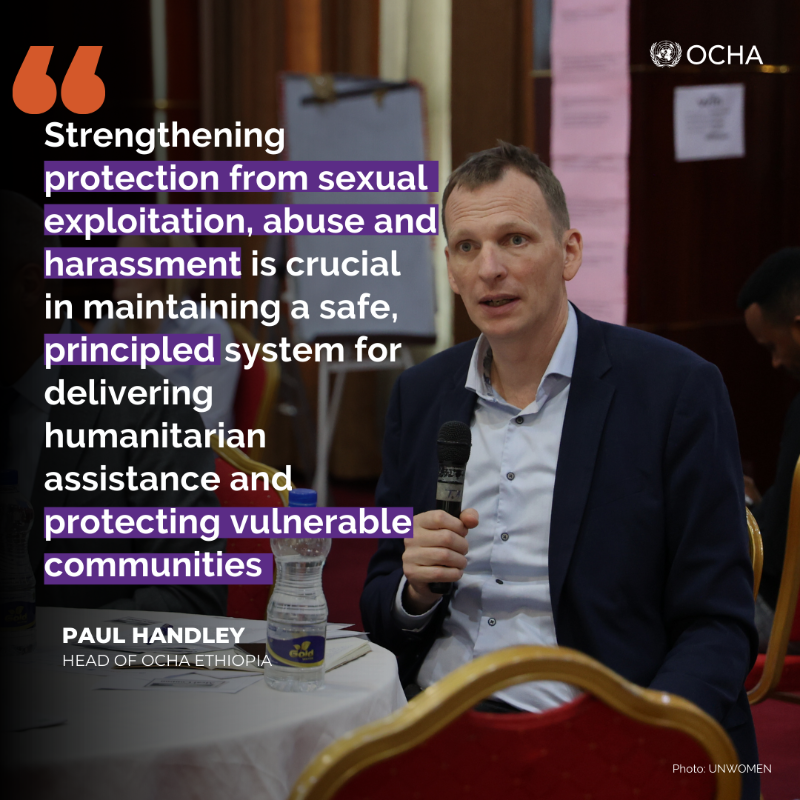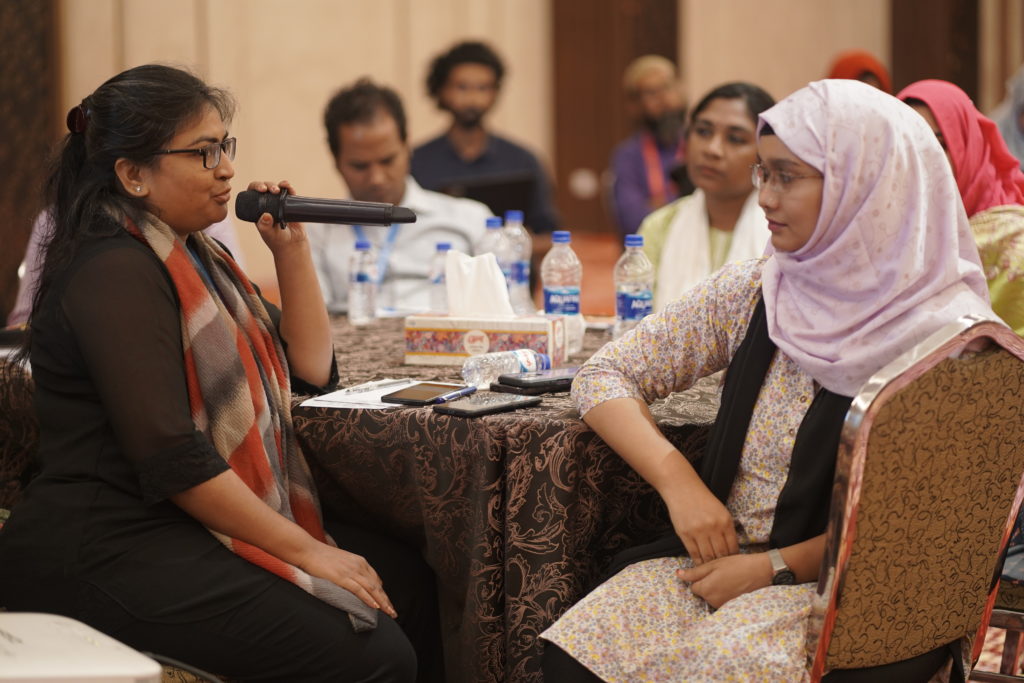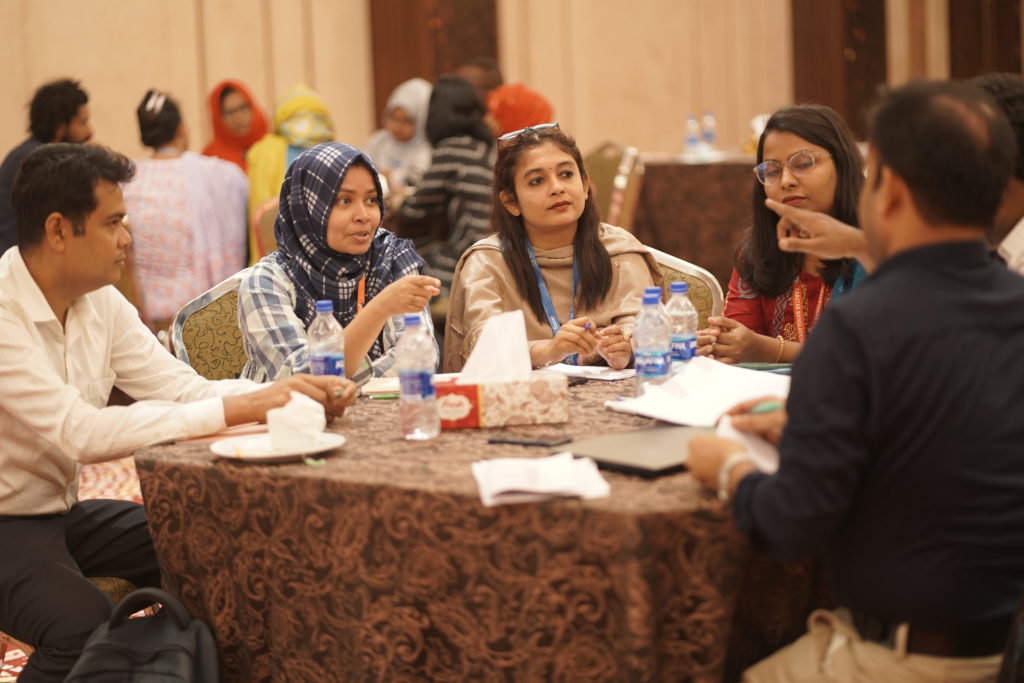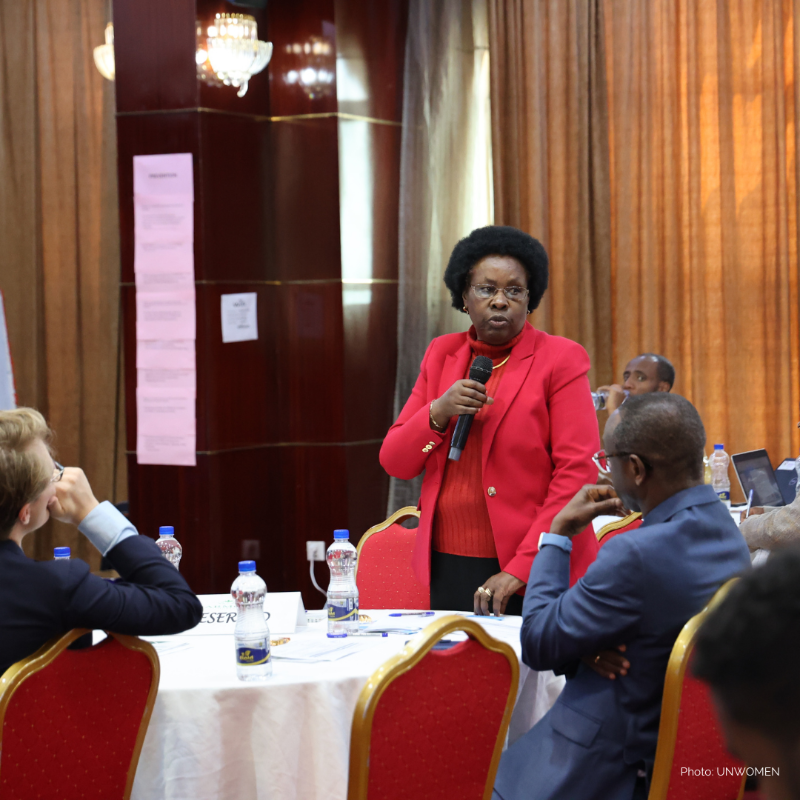Local leaders closing the accountability gap in Palestine, Ethiopia & Bangladesh
Inspirational local organisations and community leaders are spearheading creative new ways to tackle sexual exploitation, abuse and harassment. Partnering with CHS Alliance, seven actors are piloting innovative, locally led projects to address to SEAH in a survivor centred way.
Closing the aid system’s Accountability Gap
The sexual exploitation, abuse, and harassment (SEAH) of crisis-affected people by aid workers is among the worst failures of accountability in our sector.
Effective Protection against SEAH (PSEAH) must be based on the wishes and needs of victim/survivors. It requires a contextualised response that is culturally appropriate and based on local knowledge and solutions.
CHS Alliance’ Closing the Accountability Gap project, supported by the Dutch Ministry of Foreign Affairs, has been demonstrating how to improve accountability of aid actors and interagency efforts through an approach based on people’s needs and rights. Together with seven local organisations in Palestine, Ethiopia and Bangladesh we have been working with victims/survivors through trusted intermediaries to identify and pilot the PSEAH measures that effectively respond to SEAH in a victim/survivor-centred way.

Paul Handley at a Closing the Accountability Gap Learning Workshop in Ethiopia, May 2024. Credit: UN Women
A cross-country learning session of these local pioneers, convened on 16 May 2024 reflected on challenges faced and overcome, lessons for scale up and sustainability aligned with the CHS.
“The Closing the Accountability project has shown what is possible when you trust that victims/survivors – and those who work closest to them – know what’s best. We’ve seen a true shift in how accountability to survivors of SEAH is thought about and acted on, building an important knowledge base for achieving our accountability goals across the system. Importantly, this project has contributed to operationalising a key Inter-Agency Standing Committee objective on taking a victim/survivor centred Approach (VCA) to PSEAH.” Laura Brinks, Senior Policy Officer, Dutch Ministry of Foreign Affairs
Locally led victim-centred services in emergency contexts
In Palestine, for example, the first chosen project to pilot focused on providing pre-emptive victim-centred services to those at risk of SEAH in the West Bank. The well know risks of power imbalances between those providing aid and those being supported have been intensified particularly in recent months where people have been prevented from travelling back to their homes in Gaza.
Key elements of this project include identifying which individuals may be most at risk to try and prevent abuse happening in the first place. When abuse does occur, victims/survivors are offered legal consultations, direct material aid and counselling.
Legal consultations provide crucial advice and guidance to survivors, ensuring they understand their rights and the legal avenues available to them. Material aid, though limited, offers immediate relief and reduces survivors’ dependence on potentially exploitative aid providers. Counselling services are critical, offering psychological support to help survivors process their trauma and regain control over their lives.
“Providing consistent support, whether through mental health services or material aid, helps survivors regain a sense of control and empowers them to report abuses. This ongoing support is crucial for moving towards accountability and prevention.”
“We are seeing the benefits of being able to design projects from the start. Already, more victims/survivors approaching them to share their experiences, showing the trust that is being won.” Muna Hasan, PSEA Coordinator, UNICEF Palestine
Addressing SEAH in Cox’s Bazar Camps by empowering communities

A participant speaks at a Closing the Accountability gap workshop in Cox’s Bazar, Bangladesh, May 2024. Credit: CHS Alliance
In Cox’s Bazar, Bangladesh a series of activities were conducted across three camps to address SEAH. These included a project inception meeting with 75 participants, and a two-day induction training on Vulnerability and Capacity Assessment to Prevent SEAH for nine field facilitators. The training built up capacity among community intermediaries, humanitarian actors and volunteers, emphasising victim support and the integration of informal and formal actors.
Other projects included training and deploying Rohingya female PSEAH as trusted and respected focal points to provide information as well as facilitate access to formal reporting mechanisms and assistance. Furthermore, a community consultation meeting and awareness sessions on aid organisations’ Code of Conduct reached 4,679 men and women. As a result, community representatives now feel empowered to guide survivors towards formal reporting channels and negotiate with organisations for appropriate feedback and remedies. Increased awareness has also led organisations to seek informal actors’ assistance for SEAH trend analysis, enhancing the overall community preparedness and response to SEAH issues.

Discussions at a Closing the Accountability gap workshop in Cox’s Bazar, Bangladesh, May 2024. Credit: CHS Alliance
Lessons learned and the way forward
These – and the many other interventions that have taken place over the last year – offer valuable lessons on the importance of local organisations taking creative and strategic leadership of accountability work.
Local community direction is resulting in new ways to prevent SEAH, hold perpetrators accountable and ensure survivors feel safe and supported. CHS Alliance organised a learning workshop among implementers and national workshops to share achievements, new ways of working and create stronger coalitions for VCA to PSEAH.

Cecile Mukarubuga, Head of UN Women Ethiopia at a Closing the Accountability Gap Learning Workshop in Ethiopia, May 2024. Credit: UN Women
A recent workshop in May in Addis Ababa brought together over 60 representatives from local and international organisations, the UN, donors, and the Ethiopian government for a national workshop on adopting a victim/survivor-centred approach to combat sexual exploitation, abuse, and harassment. The event, co-hosted by CHS Alliance featured insightful contributions from notable speakers. Participants shared knowledge and developed contextualised solutions to protect vulnerable communities in Ethiopia.
“Ensuring the Safety and Well-Being of affected people is an ongoing priority. We must actively engage in its protection and response. This includes advocating for implementing partners and providing them with the necessary support.” Christian Saunders UN Special Coordinator on improving the United Nations response to sexual exploitation and abuse at the event.
Looking ahead, it is essential to not let this transformational work stop here. CHS Alliance, alongside our members, partners and supporters are building on this success and learning from challenges that remain.
Look out for the soon to be released CHS Alliance Guidelines on Victim/Survivor Centred Approach to Protection against Sexual Abuse, Exploitation and Harassment which will outline how to operationalise and implement a VCA to PSEAH based on evidence and learnings from the pilots run by local leaders in Bangladesh, Ethiopia and Palestine.
